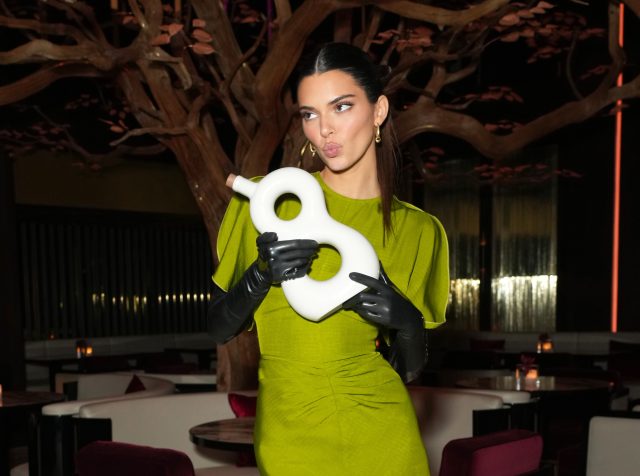The pros and cons of celebrity-backed brands
By Eloise FeildenCelebrity-backed drinks brands tend to outperform the overall market, making them an appealing investment for stars and producers alike. But are they high risk, high reward?

The rate of celebrities entering the alcohol market has slowed from 2022, according to data from IWSR Drinks Market Analysis.
The celebrity drinks wave may have peaked that year, but it is far from over. Drinks brands backed by film stars and music icons tend to outperform the rest of the alcohol market, and this is particularly true of spirits.
In 2023, celebrity whiskies grew 8% by volume, compared to 2% for the whisky category as a whole. In the same year, celebrity rums grew 11% – majorly outperforming a category that declined by 4%.
Tequila is seeing the biggest draw, with celebrity brands including Kendall Jenner’s 818, Michael Jordan’s Cincoro and Casamigos, formerly owned by George Clooney, all doing well.
In 2022, celebrity tequilas grew at 40%, three times the category growth rate of 13%. Last year the figures were 16% for celebrity tequilas against +3% for the category as a whole, IWSR has reported. The drinks market analyst said that this was partly down to timing, with celebrities turning to the category just as the Tequila boom was hitting. But star power brings with it consumer confidence.
Partner Content
“With celebrity involvement, a brand immediately has a personality ready-made,” said Emily Neill, COO of Market Research, IWSR. “Non-celebrity brands, by contrast, have to work over a period of time to create their personality and positioning.”
When it comes to wines, celebrity backing can also be a major draw. Kylie Minogue’s wine brand, Launched in May 2020 in partnership with Paul Schaafsma of Benchmark Drinks, has sold more than 15 million bottles since their union began. Read more about the pop princess and her success here.
However, celebrity-backed brands are high risk as well as high reward. Negative press about celebrities inevitably attracts significantly more attention across the world’s media than a non-celebrity brand.
Brands can also lose their identity should the celebrity backer walk away, as happened with David Beckham with Haig Club in 2023.
A celebrity-backed drink also does not always outperform the market. In 2023, volumes of celebrity-owned or backed gins actually declined by 1%, against a gin category that grew by 4%.
“When a category is trending, like Tequila, you can see celebrity brands outperforming,” said Neill. “But when a category is beginning to struggle and the boom has ended – like gin – being a celebrity brand doesn’t always insulate you from that downturn.”
Related news
Trump tariff explainer: the main takeaways




